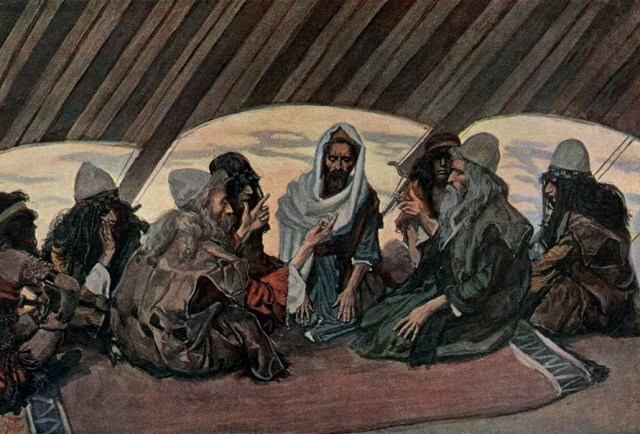(Temple Menorah according to Rambam's drawing)
The form of the Menorah symbolized the Torah.
The 7 branches parallel the seven words in the first verse in Bereishit in original Hebrew.
The 11 spheres on the Menorah parallel the 11 words in the first verse of Shemot.
The 9 blossoms parallel the 9 words in the first verse in Vayikra.
The height of the Menorah was 18 handbreadths. One handbreadth, however, was not complete, so the actual height of the Menorah was 17 handbreadths and a bit extra. These paralleled the 17 words in the first verse in Bamidbar.
The 22 cups on the Menorah parallel the 22 word in the first verse of Devarim.
It therefore comes out that the first verse of all Five Books of the Torah are alluded to in the Menorah.
The total number is 49 - paralleling the 49 days between the Exodus and the time the Torah was given.
(Me'am Lo'ez, Terumah; Yalkut Reuveni, quoting the Ari; Zera Berach 1, TEtzaveh; Torat HaOlah 16:2; Akeidah





















